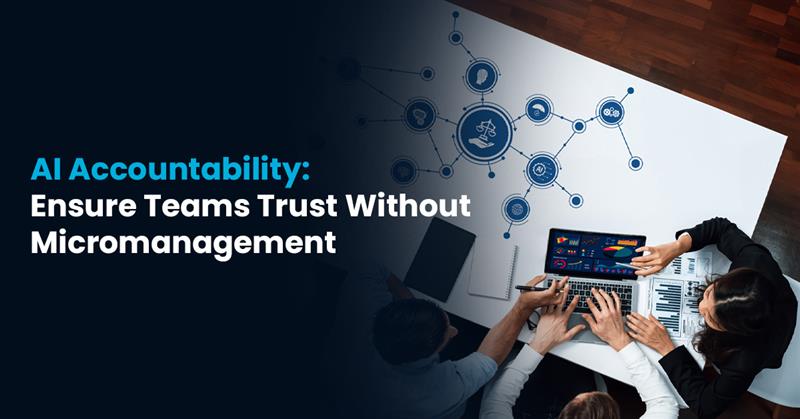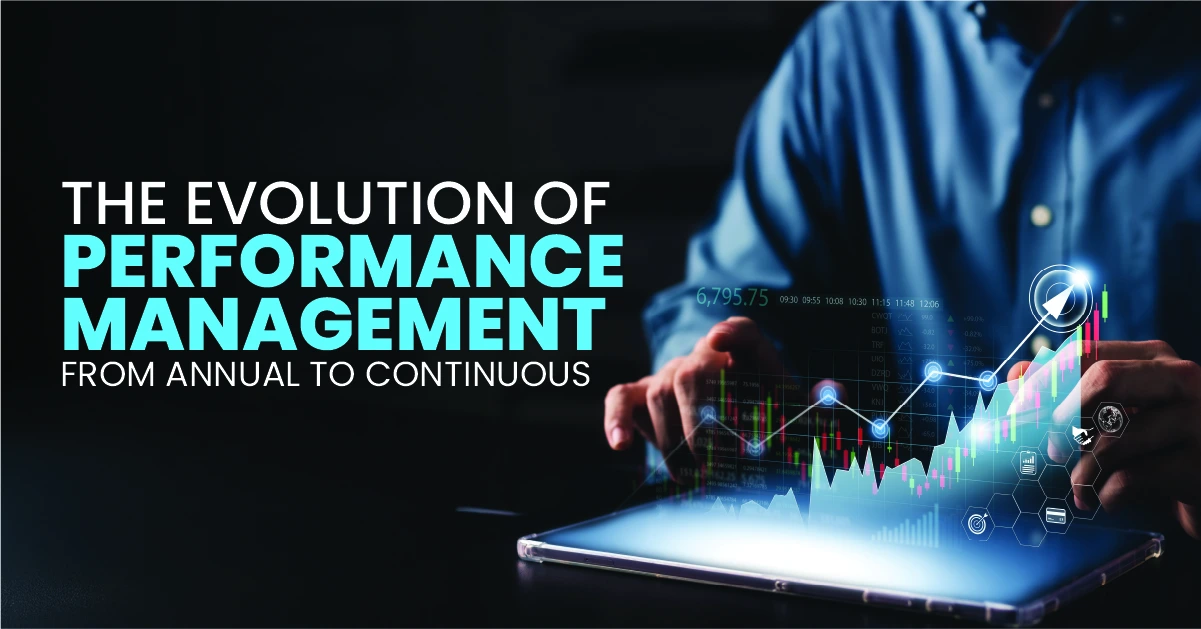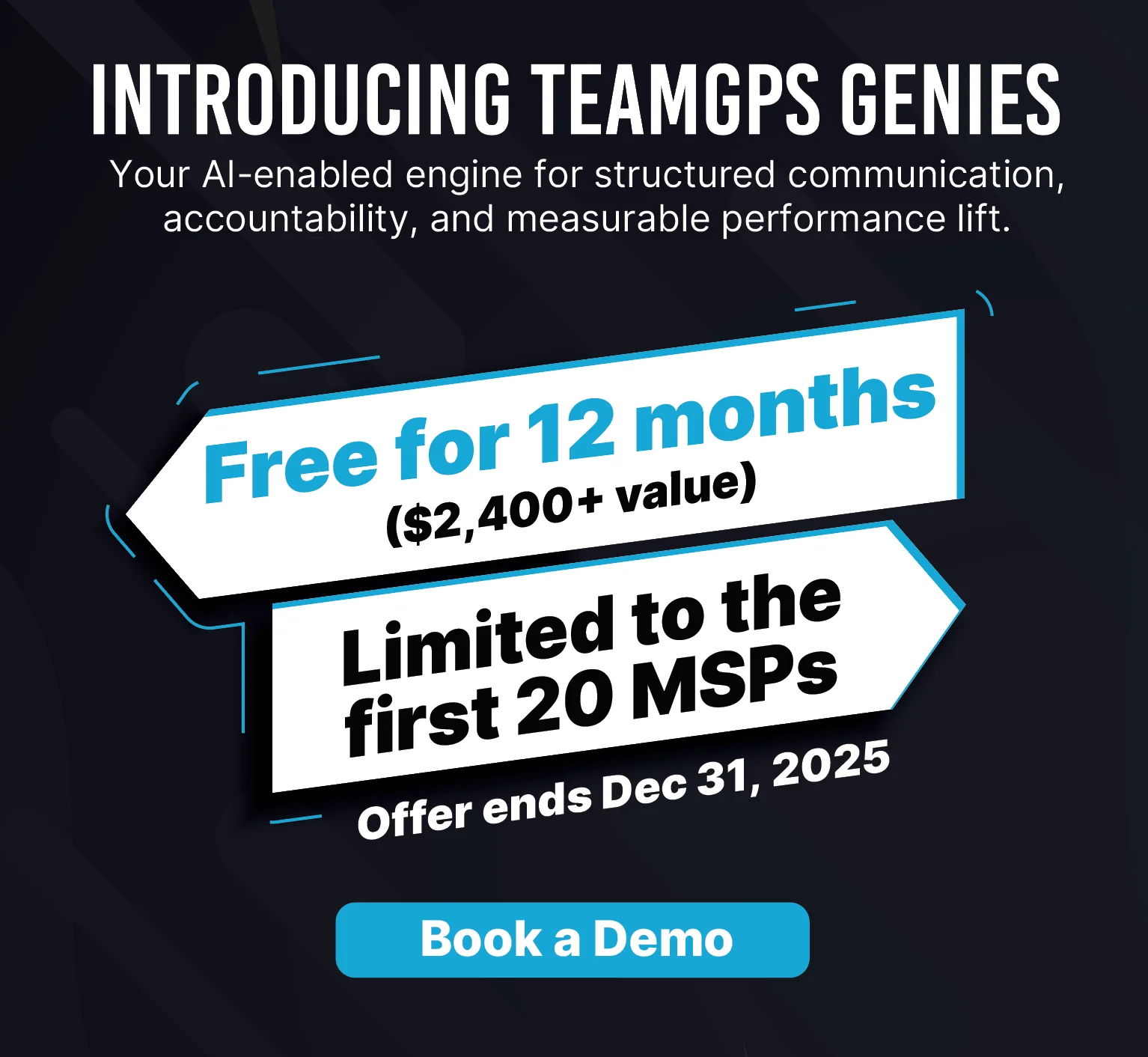The workplace has transformed dramatically. Use of generative AI has nearly doubled in the last six months, with 75% of global knowledge workers using it. Yet with this AI revolution comes a pressing challenge: how do you maintain accountability without turning into that manager everyone dreads?
The answer lies in smart AI accountability systems that build trust rather than surveillance. Let’s explore how AI team management can revolutionize your approach to keeping teams on track while preserving their autonomy and creativity.
What is AI accountability in team management?
AI accountability isn’t about using sterile algorithms to replace human judgment. Consider it your perceptive helper that enables you to comprehend the true dynamics inside your company without always monitoring everyone.
Transparency, quantifiable results, and insightful insights are all combined in contemporary AI accountability systems to provide a framework that fosters team success. AI in performance management, as opposed to conventional micromanagement, concentrates on outcomes and trends rather than monitoring.
Why AI governance matters for modern teams
Research from the 2024 State of Performance Enablement report found that 2 in 3 managers need more support to effectively manage performance, and 35% are already leveraging AI tools to enhance efficiency and effectiveness.
The numbers tell a compelling story. AI governance creates several key benefits:
- Lessens the management workload: AI productivity solutions take care of repetitive tracking, allowing managers to work strategically.
- Removes bias: AI metrics offer factual information rather than arbitrary judgments.
- Boosts employee trust: AI auditability guarantees impartial and open assessment procedures.
- Improves decision-making: Real-time insights for improved team management are provided by AI-driven accountability.
When should teams implement AI accountability systems?
Timing is everything in AI team management. Usually, the best time to deploy is when conventional management techniques begin to falter.
Think about the following situations: you’re often asking, “what’s everyone actually working on?” or your remote team appears disengaged, and project deadlines are consistently missing. These are clear signs that AI accountability may change the dynamics of your organization.
When AI productivity tools replace traditional monitoring
60% of larger employers are using monitoring technologies to track at least some of their employees, but smart organizations are shifting from surveillance to support.
The transition happens in phases:
- Phase 1: Introduce AI for project tracking to understand workflow patterns
- Phase 2: Implement AI guardrails for quality control and consistency
- Phase 3: Deploy comprehensive AI in performance management for holistic team insights
This gradual approach helps teams adapt to AI-driven accountability without feeling overwhelmed or watched.
Also Explore : Digital Transformation in Performance Management: The SaaS Revolution
Where AI accountability creates the biggest impact
Not all work environments benefit equally from AI accountability. Remote and hybrid teams see the most dramatic improvements because AI in workplace transparency fills the communication gaps that distance creates.
Cross-functional teams also benefit tremendously. When designers, developers, and marketers collaborate, AI metrics help everyone understand progress without constant status meetings.
Where AI in performance management excels
High-performing organizations strategically deploy AI accountability in specific areas:
- Project-based work: AI for project tracking provides real-time visibility into deliverables
- Sales teams: AI team management helps track pipeline progress and identify coaching opportunities
- Customer service: AI productivity tools monitor response times and satisfaction scores
- Creative departments: AI guardrails ensure quality standards while preserving creative freedom
Who benefits most from AI-driven accountability?
he beauty of AI accountability lies in its universal appeal. Everyone wins when implemented thoughtfully.
Team leaders gain confidence in their decisions because they have real data backing their choices. 80% of employees now prefer ongoing feedback over traditional annual reviews, and AI in performance management delivers exactly that continuous insight.
Who should champion AI for employee monitoring ethics?
Success depends on having the right champions at every level:
- Executives: Set the vision for ethical AI governance and ensure resources
- Middle managers: Bridge the gap between AI insights and human understanding
- HR professionals: Develop policies that protect privacy while enabling AI auditability
- Team members: Provide feedback on AI productivity tools and their real-world impact
How to implement AI accountability without micromanagement
The secret sauce isn’t in the technology—it’s in the approach. Start with transparency. Explain exactly what AI team management tools will track and why. No surprises, no hidden agendas.
Begin with collaborative goal setting. When teams help define what success looks like, AI metrics become shared accountability tools rather than management weapons.
How AI in team collaboration enhances accountability
Smart AI accountability systems enhance rather than replace human connection:
- Automated check-ins: AI productivity tools can schedule and track progress without human intervention
- Predictive insights: AI in leadership helps identify potential issues before they become problems
- Performance coaching: AI-driven accountability provides specific, actionable feedback for improvement
- Process optimization: Process metrics AI identifies bottlenecks and suggests improvements
The key is positioning AI as a team enabler, not a team evaluator.
Why AI accountability strengthens team performance
Here’s where the magic happens. When done right, AI accountability actually increases team autonomy. Teams gain confidence because they understand exactly how their work contributes to larger goals.
AI auditability also creates psychological safety. Team members may concentrate on performance rather than politics when assessment standards are clear and uniform. Currently, 38% of HR decision-makers include AI intoin their procedures and processes; as more businesses realize the advantages, this percentage is rising quickly.
AI measurements are data-driven, which removes uncertainty from performance discussions. Managers might remark “the data shows this specific pattern, let’s work together to optimize it” as an alternative to “you need to improve.”
Gartner predicts that by 2026, AI will play a role in over 80% of software development projects, while AI in healthcare is expected to save $150 billion by 2026.
Conclusion
Micromanagement is coming to an end. A better approach is provided by AI accountability, which fosters long-lasting team relations, increases performance, and fosters trust. Intelligent AI accountability solutions supplement human judgment by allowing teams the freedom they require to succeed while also offering managers the information and insights they need to make better decisions.
Are you prepared to transform the way you manage your team?
Implementing AI accountability mechanisms that improve performance while upholding trust is Team GPS’s area of expertise. Our professionals can assist you in developing AI governance frameworks that suit your particular team dynamics since they are aware of the fine line that separates supervision from autonomy.
Get a customized AI accountability plan that turns your team’s potential into quantifiable outcomes by scheduling a free Team GPS demo today.











